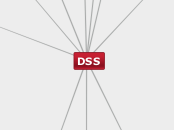によって reham ashraf 10年前.
1679
DSS

によって reham ashraf 10年前.
1679

もっと見る
business rule based decisions
tending
what-if analysis
predictive analysts
decision trees
multivariate regression
logistics regression
forecasting
scenario manager
uncertainty analysis
monto-carlo simulation
sensitivity analysis
regression
failure performance
asset degradation
design views/configuration
financial models
renewals planning
degradation modeling
risk modelling
extreme value theory (EVT)
historical simulation (HS)
value at risk (VaR)
market risk
whole life costing
ROI
NPV
IRR
Tariff optimisation
Capital budgeting: Investment decision tool
cubes
special-purpose data management system
relational data warehouse
summarise financial data by product
dynamic segmentation
GIS exchange
asset management system
Cloud-based Digital Asset Management systems
emerge to complement on-premise systems.
Production asset management systems
visual-effects shots
animation
3D feature film
video game
Library asset management systems
video or photo archiving.
Brand asset management systems
marketing collateral or fonts
logos
product imagery
apply rules to models
modify rule
define rule
combine expert knowledge with info
Specific instruction
context specific
typically simple
rule-based knowledge
Formulaic
Popular understanding
Knowledge from the media
Primary source knowledge
basic technical competence
Interactional expertise
Knowledge gained from learning the language of specialist groups
Contributory expertise
ability to contribute new knowledge or to teach
data exchange capability
data mining
neural networks
fuzzy query and analysis
data visualization
cluster analysis
case-based reasoning
Secondly, there is better factual understanding of business as well as the decision making environment.
First managers themselves learn new concepts
because use of DSS results in quick transfer of information, better data analyses, thus resulting in efficient decisions.
used for decision making and results in enhanced employee productivity.
Resistance to Change
Manage Change
shooting in the dark
Judgmental knowledge of an application area that constitutes the rules of good judgment in the field
step-by-step search
use mathematical formulas
Normative
Descriptive
What-if Scenarios
Simulation
Narrative
alternative with the lowest cost that will meet an acceptable level of goals
alternative with the highest ratio of goal attainment to cost
alternative that realizes the highest level goal
Information overload
Data estimation is often subjective
Data may not be accurate or precise enough
Obtaining data may be expensive
Data are not available
Problem Ownership
Assignment of authority to solve the problem
Problem Decomposition
Complex problems can be divided into sub-problems
Problem Classification
Place the problem in a definable category
Problem Identification
identification of organizational goals and objectives
is a DSS that collects and stores 'expertise' so that it can be used for decision-making when required.
is a DSS that uses computer storage and processing to provide document retrieval and analysis.
Videos
Sounds
Images
Hypertext documents
Scanned documents
is a DSS that uses network and communications technologies to support decision-relevant collaboration and communication
interactive video
electronic mail
document sharing
audio conferencing
is a DSS that gives access to time-series internal data. Data ware houses that have tools that provide facility to manipulate such data are examples of advances systems.
Data mining
OLAP
It is built by using two or more of the five structures
It follows certain procedures adopted as rules.It follows certain procedures adopted as rules.
is an algorithm or procedural written for performing certain calculations and particular program type
Modify procedural knowledge and also instruct the system to execute self-contained instructions
It contains organised and highly structured data
It contain textually represented information that could have a bearing of information
This kind of DSS works when the decision to be taken is based on well-structured tasks
credit scoring
insurance renewal rate calculation
This kind of DSS provides solutions through the use of optimization models which have mathematical solutions
resource allocation
material usage optimization
scheduling systems
This type of DSS can also perform 'what if analysis' and calculate the outcomes of different decision paths, based on simulated models
equipment and production simulations
risk analysis models
generating estimates of income statements and balance sheets
estimating profitability of a new product
This type of DSS provides access to sets of decision oriented databases and simple small models
product planning and analysis
sales forecasting based on a marketing database
This type of DSS supports the manipulation of data through the use of specific or generic computerized settings or tools.
budget analysis
data warehouse applications
This type of DSS primarily provides access to data stores/data related items.
monitoring systems
Sets a target value for a variable and then repeatedly changes other variables until the target value is achieved
Market research methods
Time series analysis
Regression models
Used for making decisions related to optimum utilization of resources.
provide answers to what-if situations
Deviation Function
Median Function
Datamining
Economics
Corelation
Regression
Trend Analysis
Physical Representations
Adjustment Handle
Selection
Cursor
Insertion Pointer
Pointer
Tabs
Controls
Icons
Menus
Windows
Staff Assistant
Expert Tool User
Business Analyst
Database Access Language
SQL
Procedures
To generate the reports of data retrieved from database.
To make backup copies of database
To log on to the DBMS.
Procedure to install the new DBMS.
Data
Metadata
Operational Data
Hardware
Output Device
Printer
Screen
Input Device
Mouse
Keyboard
Software
Application programs
Operating system
DBMS software itself
Handles Unstructured Data
Handles Structured Data
An inventory that specifies the source, of the data elements that are stored in a database.
Web Database servers
Multimedia Database
Web Browser data access
Data Mining
Datawarehouse
Contains Data from Transaction systems
External data mined form the Internet
Data generated by different Application
Internal data from Organization
Applicant applies for loans
inventory decisions
Make pricing decisions
Calculate production cost
Airline Reservation
decisionATM Machine